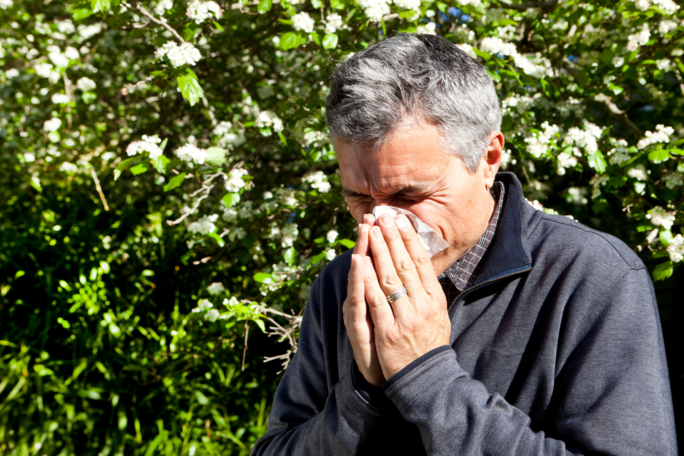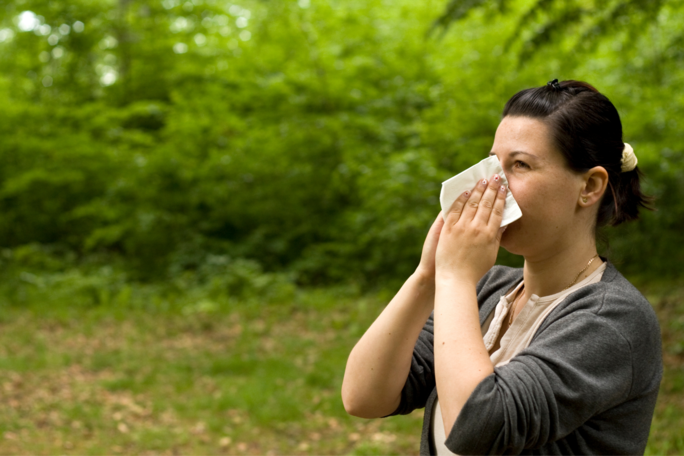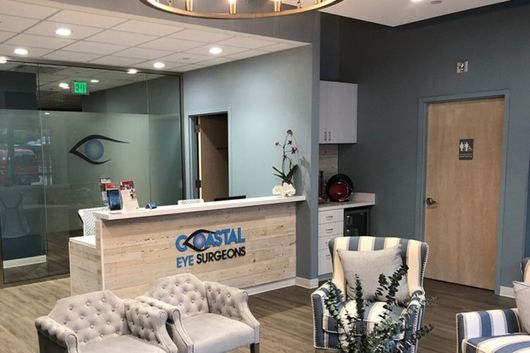
Most of us understand how annoying and frustrating the summer months can get when summer allergies start rolling around. They can cause widespread misery in those that have to deal with it and many people struggle to find relief. In some cases, it might seem like there’s no way out.
The good news is there are treatments available for those living with summer allergies for your eyes, no matter what’s triggering them. A trip to your local ophthalmologist can help you fully understand why your eyes are experiencing this and what can be done to reduce and control the symptoms.
Don’t worry, we’re going to teach you everything you need to know about summer allergies -- including how they impact eye health, some of the most common triggers, and five of the most common types of eye allergies that people struggle with in the summer. Let’s get started!
So, How Do Summer Allergies Impact Eye Health?
General eye allergies, also called allergic conjunctivitis, are normally caused by something called an allergen. When allergens in the environment come in contact with antibodies that are attached to mast cells in the eye. These cells then release histamine that results in blood vessels leaking.
The histamine that’s released causes your eyelids and conjunctiva, which is the mucous membrane covering the front of the eye and inside the eyelids. It results in red, swollen, burning, sensitive, and itchy eyes -- as well as other symptoms, such as an itchy, stuffy, and runny nose.
Some of the common triggers of eye allergies include outdoor allergens, indoor allergens, and irritants. Outdoor allergens include pollens, trees, grasses, and weeds. Indoor allergens include pet dander, dust, and mold. Irritants include cigarette smoke, diesel exhaust, and perfume.
5 Summer Allergies That Impact Eye Health
Believe it or not, there are several different types of eye allergies and they aren’t all exclusive to the summer months. Don’t worry, we’re going to detail five of the most common eye allergies that you should be aware of year-round -- including those seasonal allergies we all hate!
Seasonal and Perennial Allergic Conjunctivitis
Also known as seasonal allergies, Seasonal Allergic Conjunctivitis is the most common type of eye allergy -- by far. It’s caused by allergic reactions to pollen counts in the air, which comes from trees, grass, weeds, and ragweed. It’s most common in the spring, summer, and fall.
Some of the most common summer allergy symptoms include watery eyes, itching, redness, burning, congestion, and sneezing. If the symptoms occur year-round (not seasonally), then it’s Perennial Allergic Conjunctivitis. The symptoms and allergy triggers are the same, but milder.
Vernal Keratoconjunctivitis
Compared to Seasonal and Perennial Allergic Conjunctivitis, Vernal Keratoconjunctivitis is much more severe. It can occur year-round, but symptoms generally worsen during the spring and summer. It’s characterized by chronic swelling or inflammation of the outer lining of the eyes.
This type of summer allergy is caused by a hypersensitivity to airborne-allergens and generally impacts younger boys. It can impair vision if the patient isn’t put on the right treatment plan. Most patients also report eczema or asthma, as well as photophobia and significant tearing.
Atopic Keratoconjunctivitis
Where Vernal Keratoconjunctivitis mostly occurs in younger boys, Atopic Keratoconjunctivitis generally affects older patients. Most patients have a history of allergic dermatitis, which is an allergic reaction on the skin. Atopic Keratoconjunctivitis symptoms usually occur year-round.
Without the right treatment plan, Atopic Keratoconjunctivitis can lead to scarring of the cornea (the clear outer layer of the eye) and scarring of the cornea’s delicate membrane. Symptoms include severe itching, burning, redness, and the production of a thick mucus while sleeping.
Contact Allergic Conjunctivitis
Contact Allergic Conjunctivitis isn’t necessarily caused by pollens in the air, but rather irritation caused by contact lenses. It can also be caused by proteins produced from tears that end up binding to the natural lens’ surface. It can occur year-round for anyone wearing contact lenses.
Symptoms of Contact Allergic Conjunctivitis include redness of the eye, itching, mucous discharge, and lens discomfort. Your doctor may recommend you cease wearing contact lenses until the symptoms resolve. This is usually temporary while they put you on a treatment plan.
Giant Papillary Conjunctivitis
Much like Contact Allergic Conjunctivitis, Giant Papillary Conjunctivitis often occurs in those that wear contact lenses. It’s a severe allergic reaction that involves individual fluid sacs (also known as papules) form in the inner eyelid’s upper lining. It can happen to anyone that wears contacts.
Symptoms of Giant Papillary Conjunctivitis include foreign body sensations, poor tolerance to contact lenses, frequent tearing, mucous discharge, itching, puffiness, and blurred vision. You should contact your local ophthalmologist immediately if you start experience any symptoms.
How Are Summer Allergies Treated?
There are a number of ways your ophthalmologist can treat summer allergies, though it largely depends on what’s causing the allergic reaction and the health of your eye. Either way, summer allergies don’t need to haunt your eye health for long, so long as you seek treatment right away.
Your doctor may recommend over-the-counter treatments, such as the use of artificial tears to wash allergens away, decongestants to reduce redness, or oral antihistamines to relieve itching. These are generally viewed as temporary solutions, but can be effective for the right person.
There are also a number of prescription treatments, such as antihistamine eye drops, mast cell stabilizer eye drops, NSAID eye drops, Corticosteroid eye drops, non-sedating oral antihistamines, allergy shots (also known as immunotherapy), or a combination of the above.
In addition to those treatments, they might suggest keeping doors and windows closed in the home, avoid fans, wear glasses when outdoors, avoid rubbing the eyes, keep humidity levels low in the home, clean your home frequently, and wash your hands after petting an animal.
Schedule an Appointment With Us Today!
Summer allergies can be extremely daunting for anyone that can’t seem to get rid of them. If this sounds like you, it’s important to know that there are a number of treatment options available and your local ophthalmologist can help you find the one that’s right for you.
When you’re ready to finally retake control of your eye health from allergies, contact Dr. Omar Shakir at Coastal Eye Surgeons. You’ll be blown away by our boutique-style setting and the amazing technology we have to monitor, diagnose, and treat all of your eye health needs.
Check out our article on Should You Be Worried About Dry Eyes?





